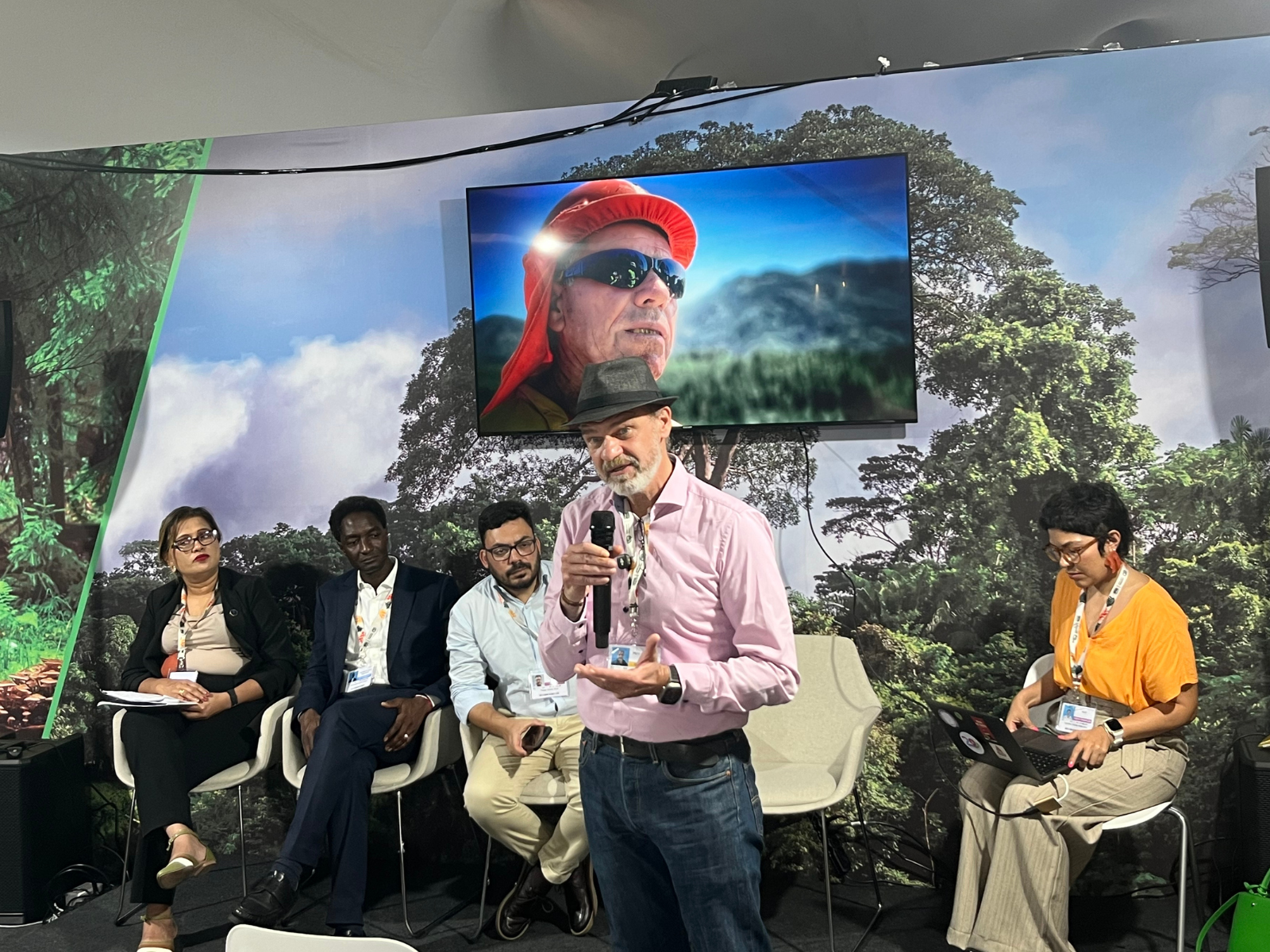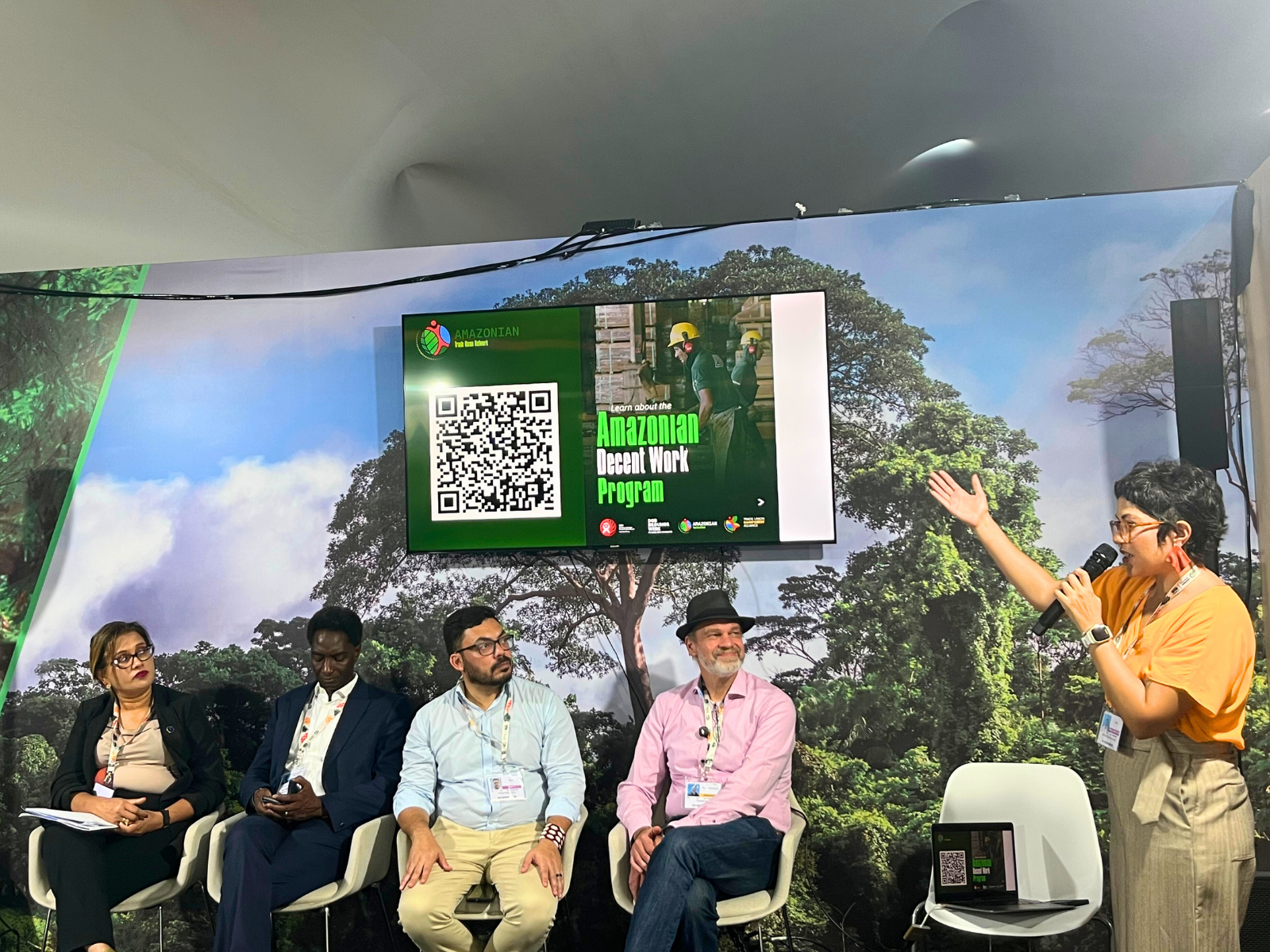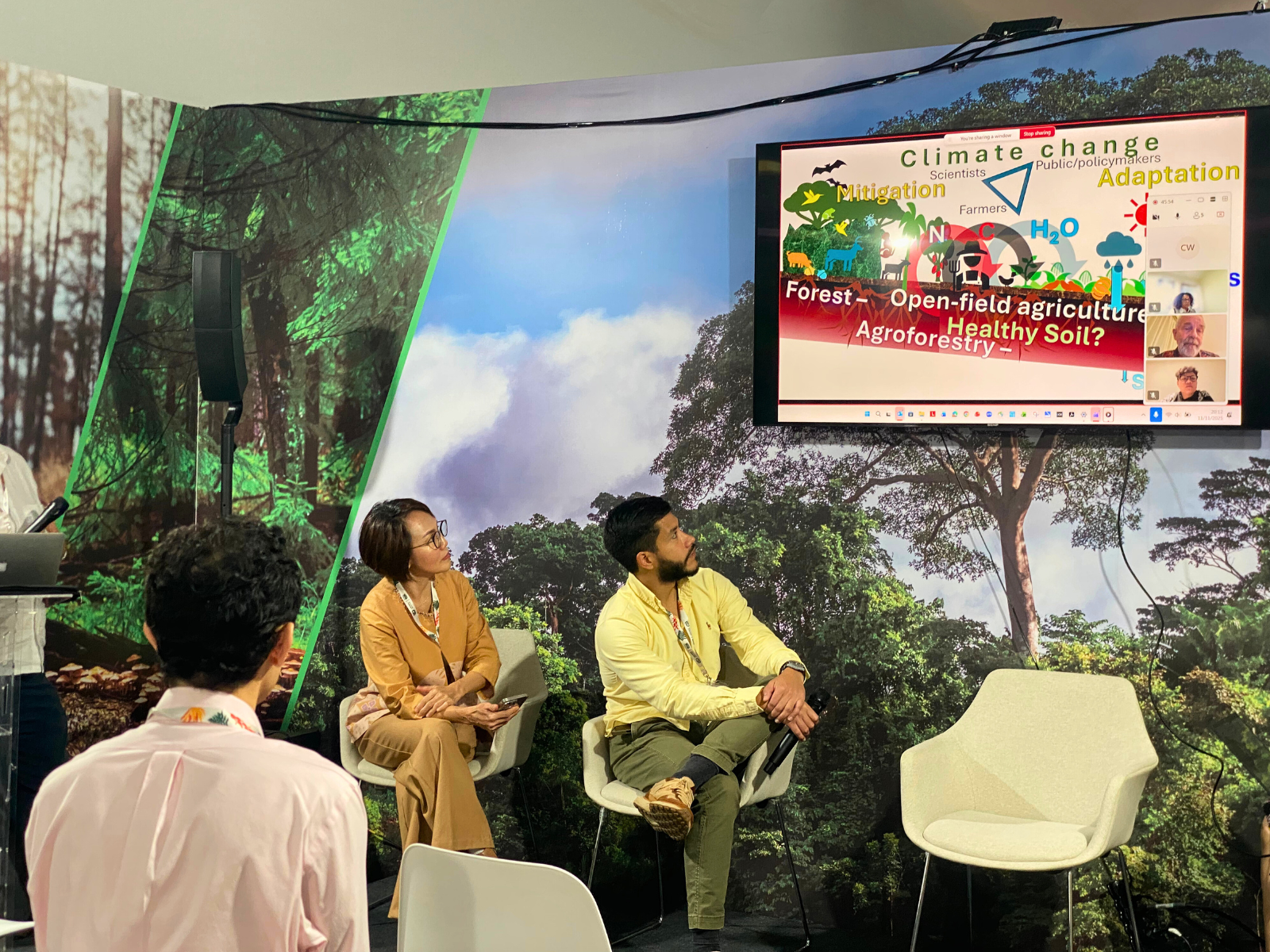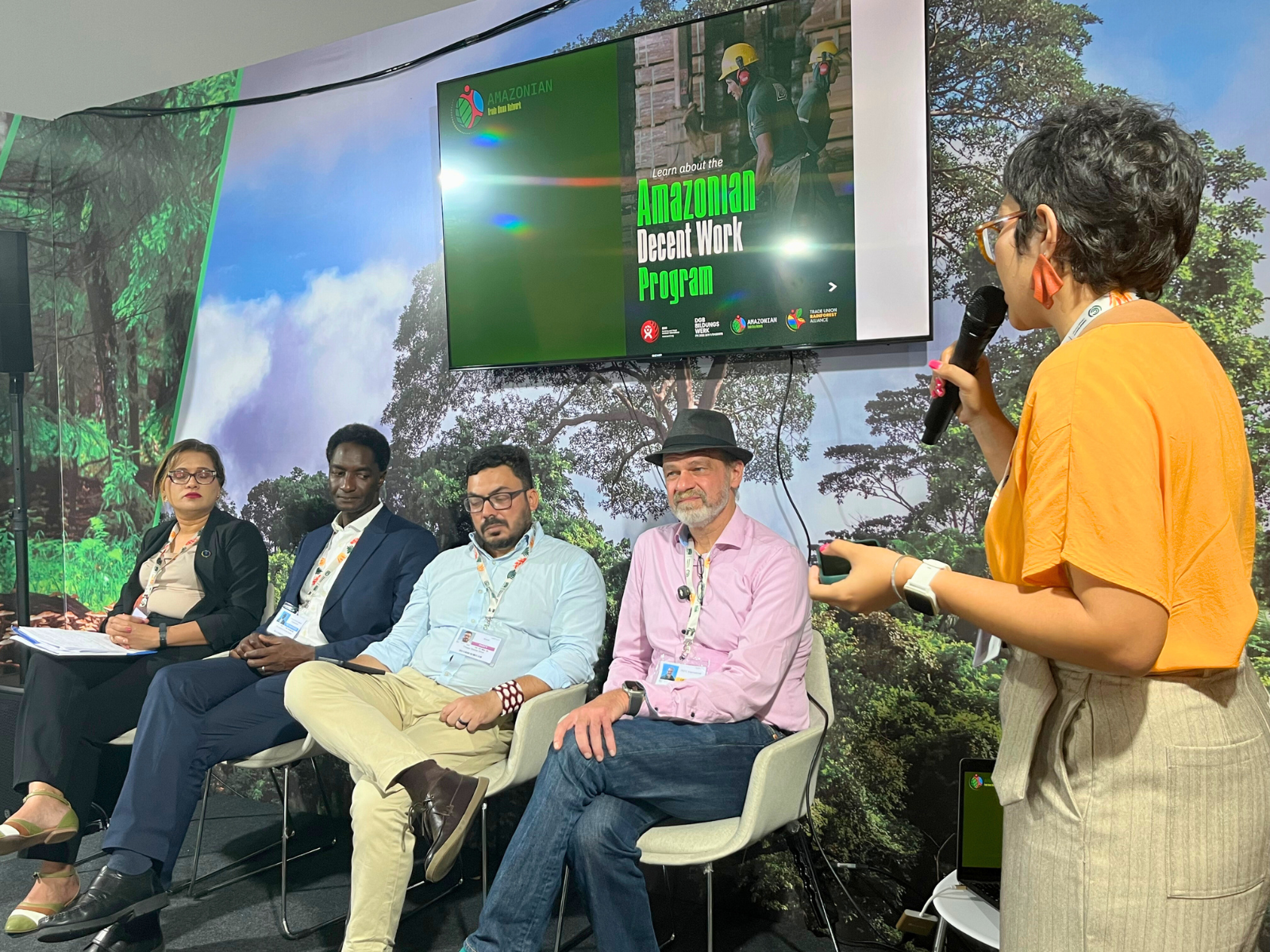The Human Face of Certification
At a COP 30 side event titled “Decent Work in the Amazon Rainforest,” panelists agreed that forest sustainability rests equally on ecological integrity and on the rights and livelihoods of the people who live and work among those forests.
The Human Face of Certification
27 November 2025 Event report
At a COP 30 side event titled “Decent Work in the Amazon Rainforest,” panelists from labour, government, regional, and certification bodies agreed that forest sustainability cannot be defined by trees alone.
True sustainability, they argued, rests equally on ecological integrity and on the rights and livelihoods of the people who live and work among those forests.
Decent work: the overlooked pillar

Opening the discussion, Carolina Dantas of the Building and Wood Workers’ International (BWI) described the Amazon’s “decent-work deficit” in stark terms: informality - 58% of workers lack formal contracts or social-security contributions, nearly 20% higher than the rest of Brazil - resulting in limited labour rights, low wages (40% below the national average), unstable occupations, and high poverty levels.
Precariousness, she said, travels hand in hand with deforestation: “forest destruction and precarious jobs go together.”
For her, certification and forest governance must evolve to change that equation, embedding labour rights, safety, and fair pay into the same assurance systems that monitor logging or biodiversity.
A just and sustainable future for the Amazon requires integrated solutions that centre decent work – creating quality jobs through sustainable forest management, restoration, and bioeconomy activities capable of driving inclusive development and improving the lives of Amazonian communities.
Decent work as a fundamental right

Mostafa Kamal Gaye of the International Labour Organization (ILO) placed those concerns within a broader rights framework.
He recalled that occupational safety and health were only recently recognised as fundamental principles of work and insisted that they must apply in every forest.
Decent work, he explained, means productive employment, rights at work, social protection, and social dialogue – the four pillars of human dignity.
Certification systems and climate programs, he argued, should explicitly reflect those elements.
Current financing models, he warned, too often overlook training or social protection because they lack a direct emissions metric; the next stage of forest and climate finance must value the human enablers of climate action.
Regional cooperation: protecting those who protect the forest
Representing the Amazon Cooperation Treaty Organization (ACTO), Ratna Kewal underlined the need for coordinated protection of both ecosystems and communities. The people safeguarding the Amazon, she said, “need protection themselves.”
ACTO, she explained, is building regional mechanisms that link environmental and social monitoring so that projects assess impacts on workers and local residents before, during, and after implementation. For her, regional cooperation – connecting governments, trade unions, and forest authorities – is essential to make sustainability tangible on the ground.
Restoration as livelihood opportunity

Speaking for the host government, Thiago Belote Silva, Director of Forests at Brazil’s Ministry of Environment and Climate Change, pointed to restoration as a source of green employment.
He noted that restoring 12 million hectares of native vegetation by 2030 could generate over five million formal jobs.
Achieving that vision, he said, requires two steps: strengthening national governance to attract investors who value social safeguards, and professionalising local institutions so communities can implement safe, decent restoration work. He also urged a mindset shift among investors to balance financial standards with respect for local cultures.
Certification’s next step: from procedures to outcomes
From the certification side, Thorsten Arndt of PEFC International brought a personal illustration. He recounted meeting José, a forestry worker whose life changed when his employer became certified: “Suddenly they had safety equipment, decent camps, and transport to the worksite.”
That story, he said, shows what certification already delivers – but also why it must evolve. “Instead of checking procedures, let’s measure outcomes,” he proposed, suggesting indicators such as accident rates or verified improvements in safety. He also urged closer links between certification data and public policy and encouraged collaboration to embed decent work across the system.
From compliance to social integrity

Across their different mandates, the panelists converged on one message: forest sustainability is inseparable from social justice.
The 48 million inhabitants of the Amazon Basin must have access to decent work, by strengthening union participation, guaranteeing labour rights, combating informality, child labour and slavery, expanding OSH and labour inspection, promoting gender and racial equity, and creates quality green jobs through sustainable forest management, restoration, and bioeconomy activities.
As the discussion closed, Thorsten reminded the audience of the scale of potential impact – millions of workers employed under certified operations – and invited collaboration. “Certification expertise is not labour expertise. We know how to write standards, but you know what decent work is all about.”
In that exchange lay the session’s unifying insight: the future credibility of certification will depend on proving that sustainable forests also mean sustainable lives.